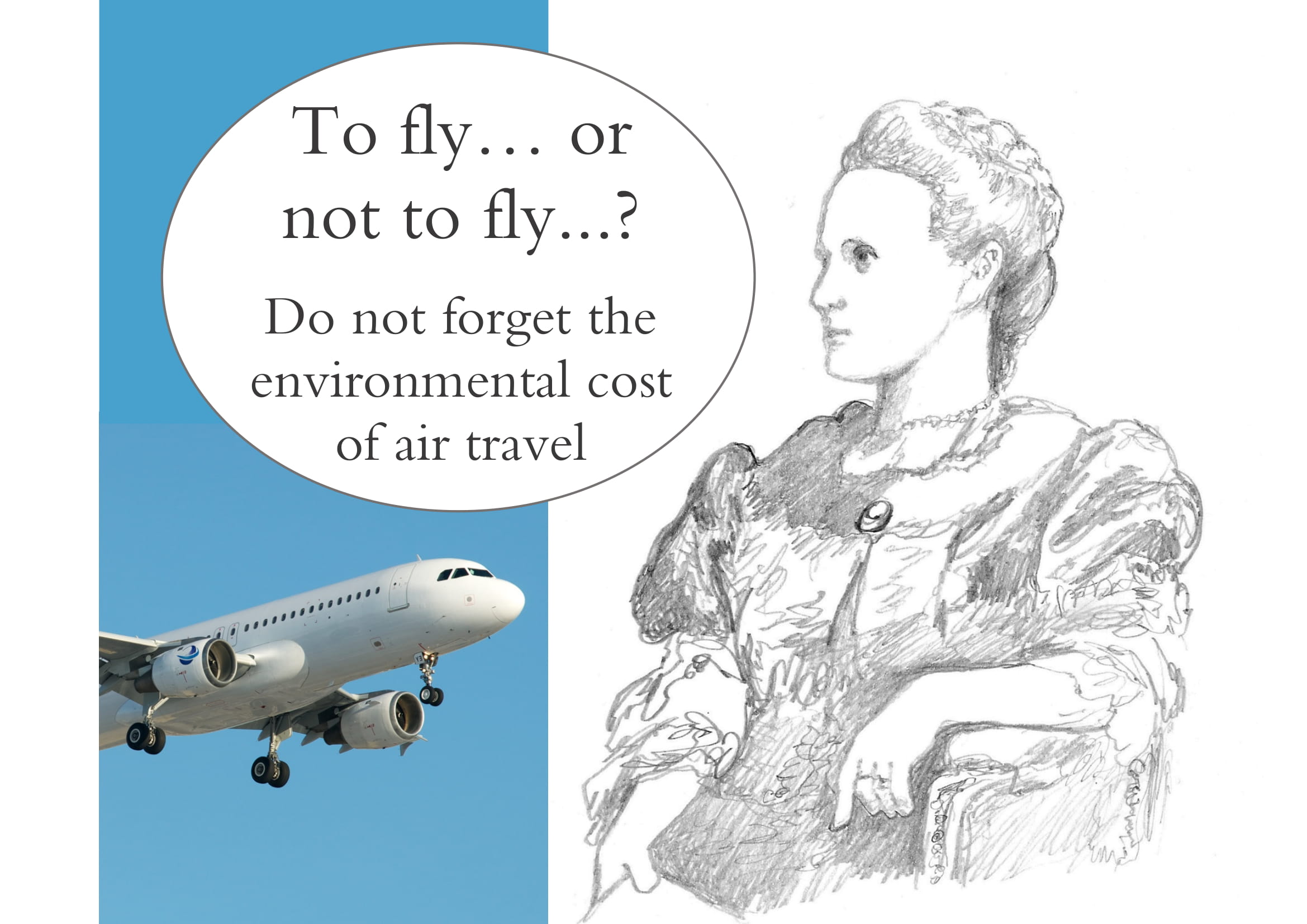By Selma Brodrej and Shannon Felländer-Tsai
What do you, as a Sciences Po exchange student, see if you scroll through your social media feeds? Instagram stories of the weekend’s latest city getaway. And what seems to be the most popular distraction during the less exciting lectures? Chasing cheap flight tickets on Skyscanner, or looking up “Top 10 Things to Do in Budapest”. Air travel represents a quickly growing share of the rich population’s carbon footprint, and with the 1.5 degree climate goal getting more and more out of reach, something seems clear to us. We need to problematize our generation’s unhealthy obsession with traveling, which is widely reflected in students’ exchange semesters.
When politicians fail to change the system that is causing the destruction of the Earth, it is time for collective action to guide us towards the sustainable future we strive for. And collective action is becoming more and more of a driving force in the fight to combat climate change. Just look at the People’s Climate March in 2014, or the more recent petition by students from French top schools urging employers to secure sustainable business practices. However, one particular arena seems to have remained untouched by these movements — our flying habits. If we want to fight climate change, each person can only emit a maximum of two tonnes of CO2 per year. Right now, a single one-way flight between London and Seattle emits 0.66 tonnes of CO2. Trains, on the other hand, have the possibility of transporting us carbon-free. The trains running on Swedish railways rely on 100 % renewable energy, and Deutsche Bahn in Germany is working towards reaching the same goal. Trains can provide us with transportation almost free of carbon emission. So, why is it that we keep taking planes everywhere?
Most Sciences Po exchange students have probably increased their carbon footprint over the semester through unnecessary flights, despite their reputation as progressive ecologists. We get it. Everyone wants to explore and discover new cultures during their term abroad, especially when one can do it for a low price. That is great, knowledge about different cultures brings us together in times of rising nationalism and populism. But hear us out, going on a weekend trip to Prague is not necessarily discovering a new culture. It is more likely to be a contribution to mass tourism. Furthermore, renting a cheap Airbnb apartment in the city center probably displaces locals in need of permanent accommodation in their own cities; just look at Barcelona. Of course, the short distances between cool places in Europe are appealing for people that are used to traveling for days to see another part of a country.
However, the fact that cities in Europe are so close to each other is a strong argument for taking the train instead of the plane during your weekend trip. In addition, the goal of a semester abroad should not be to maximize the number of countries visited. This type of “checklist tourism” will not enrich our understanding of other cultures, and it will not build bonds between countries. Instead, it is destructive, both for the environment and for locals. We all moved to France for a reason, so let us grab the opportunity to fully get to know the country and culture, rather than going on Eurotrips every weekend.
Advocating for a plane-free lifestyle may seem radical, especially for exchange students from different continents. We are by no means speaking against using student exchange opportunities. Enriching your degree with a term abroad is great, and we are not saying you should have to take a boat across the Atlantic ocean in order to do so. However, flights are not always the only option. For instance, Uppsala University in Sweden has launched a great initiative for students who are going on exchange. They offer them a scholarship of 190 euros on the condition that students take a train to their new place of study. The money can be used for a one-way train ticket or for an interrailing card. This is something we hope other universities can be inspired by, and something that can help reinvent traveling.
Despite the hard tone in our argument, our aim is not to shame anyone. But we do want to remain honest. Instead of constantly thinking about how we would be better off somewhere else, how about we all try to create an everyday life that we are happy with? Because in the long run, how much do we really get from commercialized express tourism, apart from three new photos to our Instagram accounts? If you have the opportunity, join us for a flight free 2019. Collective action is the way forward.
Original publication at: http://lapeniche.net/opinion-column-sciences-po-exchange-students-lets-reinvent-travelling/?fbclid=IwAR0ugFDurTpSsJF1kECI94Sfki7IbJjvZUY61O1yM10gccnCZMIMbrAyCao
What thoughts do you have regarding this issue? Write a response by first contacting the editor, and we will publish your opinion.
The writers in crime, Selma and Shannon, are two Swedish exchange students at Sciences Po Paris and Reims. Shannon likes to study at standing desks, and Selma is interested in astrology. Despite their strong writing bond, they have only met a few times in real life. Their bond was tied whilst buying matching t-shirts at an anniversary party for a bar in Stockholm this summer.
Other posts that may interest you:
- The Trouble with ‘Ecocide’
- Carbon dioxide removal – hit or miss?
- Local Victories for Turkish Opposition — A Sign of Hope?
- Are France and Japan a Mismatch Made in Heaven?
- A Reflection on Dark Tourism
Discover more from The Sundial Press
Subscribe to get the latest posts sent to your email.





